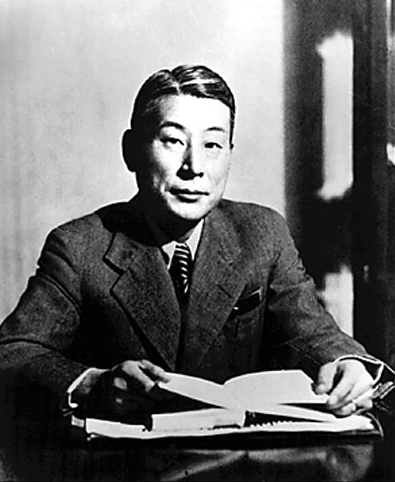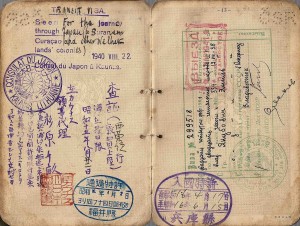During the Second World War, as consular representative in Lithuania, the diplomat Chiune Sugihara issued travel visas to refugees fleeing persecution, against the orders of his government, placing his own family in danger and saving the lives of some 6,000 people. The town of his birth now seeks to promote his actions and raise the profile of his legacy.
Sugihara, known as the ‘Japanese Schindler’, was born in the area of Yaotsu Town in Gifu Prefecture, which is located approximately in the centre of Japan, and is a small municipality with an area of 130 km sq and a population of 12,000.
In November 1939, as a Japanese career diplomat, Sugihara was sent to Kovno (Kaunas), then the capital of Lithuania, to serve as Japan’s Consul. As part of his job, he was to monitor the manoeuvres of the German Army across the border, so that Japanese headquarters would know in advance of the anticipated German attack on the Soviet Union.
Lithuania was annexed to the Soviet Union in 1940, and all foreign diplomats were asked to leave Kovno by the end of August. Sugihara was informed that a Jewish delegation was waiting in front of his consulate, asking to see him, headed by Zerach Warhaftig – a Jewish refugee who was years later to become a minister in the government of the State of Israel. Sugihara met with the delegation for a brief conversation as they had come with a desperate request for visas to travel out of Lithuania.
Thanks to Sugihara they were able to leave Europe and near certain death that was to follow a year later after the German invasion in 1941. Among the recipients of visas were many rabbis and Talmudic students; their narrow escape enabled them to re-establish Jewish traditional schools elsewhere.
Yaotsu Town honoured his achievements by opening a ‘Hill of Humanity’ park dedicated to his humanitarian achievements in 1992, and in 2000 established the Chiune Sugihara Memorial Hall. Inside the Memorial Hall can be seen a reproduction of his office from the time of when he was consular representative in Lithuania, as well as replica displays of the visas given by him and which saved the Polish Jews there.
In addition, from 2006, elementary schools within the town perform an annual play of his story for the city as part of their studies of the value of human life and the importance of considering other people and relationships.
This year marks 75 years since his endeavours and Yaotsu Town will share the preserved documents relating to the original visas issued that have been in a public display, and the town council has also made an application for the documents to be registered in UNESCO’s Heritage of the World Programme in order to preserve the material for future generations. Currently, registration has gone through the assessment stage within Japan, and preparations are being made for application to UNESCO in 2017
The citizens of Yaotsu aim to raise the profile of his deeds throughout the world for the future, and to deepen understanding about his deeds and the importance of peace and the value of life.



